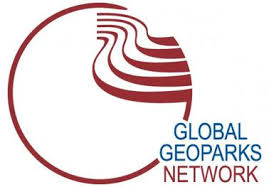UNESCO Global Geoparks Network:

The UNESCO’s Executive Board has endorsed the addition of 18 sites to the UNESCO Global Geoparks network.
- UNESCO Global Geoparks Network are single, unified geographical areas where sites and landscapes of international geological significance are managed with a holistic concept of protection, education and sustainable development.
- The UNESCO Global Geopark designation was created in 2015 and recognizes “geological heritage of international significance”.
- These comprise a number of geological heritage sites of special scientific importance, rarity or beauty.
- The establishment of a UNESCO Global Geopark is a bottom-up process involving a strong local multiple partnership with long-term public and political support.
- It is not a formal legislative designation, though the defining geological heritage sites within a UNESCO Global Geopark must be protected under indigenous, local, regional or national legislation as appropriate.
- This status does not imply restrictions on any economic activity inside a UNESCO Global Geopark where that activity complies with indigenous, local, regional and/or national legislation.
- A UNESCO Global Geopark is given this designation for a period of four years after which the functioning of the site re-examined during a revalidation process.
- The selling or destruction of the geological value of a UNESCO Global Geopark or of material either from within the Geopark or from anywhere else in the world is not permitted.
- Global Geoparks Network:
- It is a non-profit International Association officially established in 2014 subject to French legislation




